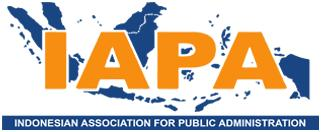Implementation of Slum Settlement Management Policies in the District of Lima Puluh Kota Pekanbaru
Abstrak
This study aimed to determine and explain the implementation of policies for handling slum settlements in Lima Puluh Kota Pekanbaru. This research uses a qualitative method with a descriptive approach that aims to describe the relationship between the phenomena investigated. Qualitative data analysis is carried out interactively and takes place continuously until complete so that the data is saturated. The study results indicate that the government's resources are limited in implementing the handling of slum settlements. For this reason, there is a need for collaboration between the government and the private sector. The role of the private sector also includes the contribution of funds through private investments that are beneficial to support the process of handling slum settlements. The monitoring and evaluation of the private sector also contribute to maintaining the results obtained through community empowerment projects from some of the profits from private investments that have been operating and increasing the amount of the budget by field needs.
Kata Kunci
Teks Lengkap:
PDFReferensi
Arifin, T. (2014). Kebijakan Publik dan Transparansi Penyelenggaraan Pemerintah Daerah. Afabeta CV. Bandung.
Deddy, M. (2016). Studi Kebijakan Publik dan Pelayanan Publik. Bandung: Alfabeta.
Dunn, W. N. (2003). Pengantar Analisis Kebijakan Publik.
Fujiastuti, A., & Sunarti, S. (2011). Implementasi Kebijakan Penanganan Permukiman Kumuh Di Kawasan Kota Pekalongan (Doctoral Dissertation, Universitas Diponegoro).
Goggin, M. L., Bowman, A. O. M., & Lester, J. P. (1990). Implementation Theory And Practice: Toward A Third Generation. Scott Foresman & Company.
Hamdi, M. (2014). Kebijakan publik: proses, analisis, dan partisipasi. Ghalia Indonesia.
Harun, N. I., & Haras, K. T. (2019). Implementasi Kebijakan Penanganan Permukiman Kumuh Di Kabupaten Gorontalo. Gorontalo Journal Of Public Administration Studies, 2(1), 41–51.
Hernimawati, Prihati, Dailiati, S., & Saputra, T. (2018). Rising Pendapatan Asli Daerah (PAD) in Pekanbaru: Billboard Planning Policy Tax. IOP Conference Series: Earth and Environmental Science, 156(1). https://doi.org/10.1088/1755-1315/156/1/012032
Milles, M. B., Huberman, M. A., & Saldana, J. (2014). Qualitative Data Analysis A methods Sourcebook Edition 3 (Terjemahan Tjetjep Rohindi Rohidi). In Sage Publications, Inc.
Nawi, R. (2018). Reinventing Government dalam Model Analisis Kebijakan Pelayanan Birokrasi di Indonesia. Jurnal Universitas Satriamakassar.
Novianto, A., Ridhah, T., & Yunindyawati, Y. (2019). Restorasi Pemukiman Kumuh Sebagai Kampung Wisata (Studi Kasus Kampung Warna-Warni Di Palembang) (Doctoral Dissertation, Sriwijaya University).
Nugroho, R. (2014). Public Policy. Pt. Elex Media Komputindo.
Ramadhan, R. A. (2020). The advocacy coalition framework approach to row house policy in Tamansari, Bandung city. Jurnal Manajemen Pelayanan Publik, 3(2), 82. https://doi.org/10.24198/jmpp.v3i2.25734
Wahab. (1991). Analisis Kebijaksanaan: Dari Formulasi Ke Implementasi Kebijaksanaan Negara. bumi aksara.
Winarno, B. (2002). Teori dan proses kebijakan publik. Media Pressindo.
Yuliani, F., Syofian, Saputra, T., & Pratami, A. (2020). The influence of human resource practices on corporate environmental citizenship. Polish Journal of Management Studies, 22(2), 576–593. https://doi.org/10.17512/pjms.2020.22.2.38
DOI: https://doi.org/10.24198/jmpp.v5i2.36276
Refbacks
- Saat ini tidak ada refbacks.
Jurnal Manajemen Pelayanan Publik Indexed By:



This work is licensed under a Creative Commons Attribution-ShareAlike 4.0 International License.


















21.png)



.png)